One of the primary arguments I hear people making against my friend and brother in Christ, Zen Garcia has to do with his take on the Holy Spirit as “feminine.” As a result of Zen’s position on this topic, I’ve likewise come under attack because I remain committed to a friendship with Zen and partnership with him on the Quest4Truth: Genesis & Enoch study we are doing together on our Truth Frequency Radio shows… and because I share similar views concerning the Holy Spirit. So, I’d like to address this issue here.
But before I do, let me say that from what I’ve seen, the vast majority of those who attack Zen have never done even a fraction of the research he has done on this and also a wide variety of other topics he has become known for discussing, believing and teaching. After being friends with Zen for a long time, one thing I can say for certain is that Zen doesn’t just make stuff up. While I don’t always agree with his conclusions, I know for a fact that he came to those conclusions only after intense study of a lot of ancient material both in and out of the canon of Scripture. Zen can back up his beliefs with text after text after text, thoroughly documented in the ancient record. Most of the time, I can not say the same for his detractors. And regardless of what his accusers say, I know Zen views the Bible as his ultimate source and he compares what he reads elsewhere with what is contained in the commonly accepted canon of Holy Scriptures, thus either keeping what the Scriptures confirm or tossing out what the Scriptures do not support. And more often than not, I’ve seen him wage his arguments using just the KJV.
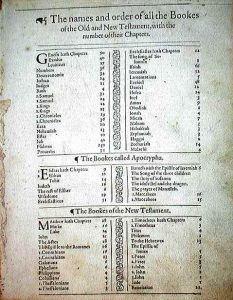 Speaking of – another thing I’ve noticed is the tendency for at least some of his/our detractors to be in the KJV Only cult. And yes, it is a cult. I’m sorry, there is no other way to put it. Whenever you find someone in the “my way or the highway” frame of mind, hyper-dogmatic about an English translation that is at least 1600 years removed from the original texts, regularly black-listing all others who disagree with them, you are dealing with a cult leader. Some of these people have even gone so far as to publicly declare they would “correct the Hebrew and Greek to the KJV.” That’s simply insane! Who in their right mind would ever think to use a translation to “correct” the original language text from which it was translated?? Granted, not all of them take that position, but many do. And for virtually all of these people, it has to be in the KJV or it’s simply not right. I find this rather ironic because what has become known as the “Apocrypha” was in the original King James Bible. So, most claiming to be KJV Only are posers at best, because very few of them will consider the texts of the “Apocrypha” as part of their precious “perfect” KJV when making a case on any given topic. And yet…
Speaking of – another thing I’ve noticed is the tendency for at least some of his/our detractors to be in the KJV Only cult. And yes, it is a cult. I’m sorry, there is no other way to put it. Whenever you find someone in the “my way or the highway” frame of mind, hyper-dogmatic about an English translation that is at least 1600 years removed from the original texts, regularly black-listing all others who disagree with them, you are dealing with a cult leader. Some of these people have even gone so far as to publicly declare they would “correct the Hebrew and Greek to the KJV.” That’s simply insane! Who in their right mind would ever think to use a translation to “correct” the original language text from which it was translated?? Granted, not all of them take that position, but many do. And for virtually all of these people, it has to be in the KJV or it’s simply not right. I find this rather ironic because what has become known as the “Apocrypha” was in the original King James Bible. So, most claiming to be KJV Only are posers at best, because very few of them will consider the texts of the “Apocrypha” as part of their precious “perfect” KJV when making a case on any given topic. And yet…
The apocrypha was a part of the KJV for 274 years until being removed in 1885 A.D.
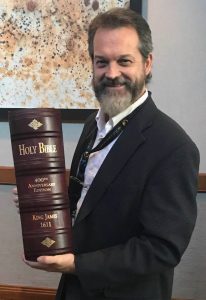 Let me pause here and say, I actually love and study from the KJV and have been reading it for over 43 years (and I’ll bet mine is bigger than yours LOL!). My issue is not so much with the KJV itself, but rather with KJV ONLY mentality. The vast majority of KJV Only advocates are not actually affirming the original 1611 KJV, but rather either the 1760 Cambridge Edition, the 1769 Oxford Edition or more likely the much later 1885 REDUCED version of that which they claim was “perfect.” Generally speaking, you can easily tell which edition of the KJV they are actually using by their use of the name “Jesus” (which didn’t show up until 1769) vs “Iesous” (which was in the original text) and whether or not their KJV Bible contains the Apocrypha. Any 66 book carrying preacher /teacher using the name “Jesus” isn’t really a true KJV Only type. They are just posing as one.
Let me pause here and say, I actually love and study from the KJV and have been reading it for over 43 years (and I’ll bet mine is bigger than yours LOL!). My issue is not so much with the KJV itself, but rather with KJV ONLY mentality. The vast majority of KJV Only advocates are not actually affirming the original 1611 KJV, but rather either the 1760 Cambridge Edition, the 1769 Oxford Edition or more likely the much later 1885 REDUCED version of that which they claim was “perfect.” Generally speaking, you can easily tell which edition of the KJV they are actually using by their use of the name “Jesus” (which didn’t show up until 1769) vs “Iesous” (which was in the original text) and whether or not their KJV Bible contains the Apocrypha. Any 66 book carrying preacher /teacher using the name “Jesus” isn’t really a true KJV Only type. They are just posing as one.
Oddly enough, while I personally am NOT a “Sacred Namer,” I have noticed that most (especially those in the KJV Only camp) who come against those who choose to use the “correct” pronunciation of YHWH and His Son’s names, are being just as hyper-dogmatic as those they are coming against. In other words, a Sacred Namer will go crazy if you don’t “properly” pronounce the Y-H-W-H name of the Father or say Yeshua/Yehoshua/Yahushua (or any other variety of derivatives thereof) “correctly”, and they’ll frequently make the completely nonsensical accusation that you are “worshipping a different God” because of this. And oh, they can be quite belligerent on this point too. Well, the same is true of the KJV Only camp, who will demand you use “Jesus” and “Jehovah” because the (1769 and later) KJV does – and that’s the “perfect” Bible, so therefore, they have the “perfect” pronunciation and thus everyone else is a heretic. KJV Only types just have their own variety of Sacred Namer doctrine – and of course, theirs is the correct one. And on and on it goes.
 Trust me. I grew up around KJV Only types my entire life. There’s no argument I haven’t heard hundreds of times. But anyone capable of looking up words and employing reasonable critical thinking skills can easily destroy most KJV Only arguments. That said, it is truly amazing to watch them go into impressive mental gymnastics trying to justify the KJV’s use of “Easter” in the book of Acts for instance. What’s even more bizarre is while they will argue that Herod was a pagan and Easter is pagan, most of these same people will then do all they can to justify why they also celebrate… that which they’ve just identified as pagan. I’ve always been astounded by this. But the fact that the KJV is the ONLY English translation that uses the word Easter, should give any reasonably sane person significant pause for consideration. These same people will pound you over the head, stressing how the KJV is a “perfect, word-for-word translation” and yet, they translated Easter from “pascha” which is everywhere else properly translated as Passover.
Trust me. I grew up around KJV Only types my entire life. There’s no argument I haven’t heard hundreds of times. But anyone capable of looking up words and employing reasonable critical thinking skills can easily destroy most KJV Only arguments. That said, it is truly amazing to watch them go into impressive mental gymnastics trying to justify the KJV’s use of “Easter” in the book of Acts for instance. What’s even more bizarre is while they will argue that Herod was a pagan and Easter is pagan, most of these same people will then do all they can to justify why they also celebrate… that which they’ve just identified as pagan. I’ve always been astounded by this. But the fact that the KJV is the ONLY English translation that uses the word Easter, should give any reasonably sane person significant pause for consideration. These same people will pound you over the head, stressing how the KJV is a “perfect, word-for-word translation” and yet, they translated Easter from “pascha” which is everywhere else properly translated as Passover.
Besides, how can anyone say the KJV is a “perfect, word-for-word translation” when they threw out the Holy Name of YHWH at least 6,220 times, replacing it with the generic title of “the LORD”?? Indeed, there are many, many more arguments like this that completely obliterate the bogus mentality of KJV Only types.
By the way, if the KJV was so “perfect” why did it go through so many revisions between 1611 and 1885? Most will argue that these revisions were mainly just to correct minor spelling errors, typos, printing press problems and such. I’d argue against that, but even if this were the case, are there errors and typos in perfection?? I thought God has “purified His word seven times,” which is a grossly misapplied, cherry pick of Psalm 12:6, very commonly used in the KJV Only camp to indicate the KJV as being the “seventh purification” of the Word of God into English (because apparently, all other Bibles in languages other than English are of course, naturally irrelevant?) after the Tyndale, Coverdale, Matthews, Great, Geneva and Bishops Bibles – conveniently dismissing the Wycliffe Bible from the list to make their bogus doctrine work. So I guess excluding all other translations of the Bible into other languages before finally making it into English, the Word of God was purified 8 times, minus one for “Middle English” (and use of the Catholic Latin Vulgate), making it 7 plus “minor revisions” in 1613, 1617, 1629, 1638, 1662, 1743, 1762, 1769, with a massive revision in 1885 thus making it “purified” 7.9 (or more) times? LOL! So much for Psalm 12:6. Naturally, they will have a rebuttal for all of this, so you will never win any argument in this regard. Whatever. It’s complete nonsense!
Tossing these stupid arguments aside – and returning more to the point of this blog – the bigger question at hand is, why would “perfection” need a massive reduction – reducing it by 14 books no less?? To put it into perspective, this is a reduction of 15% of the Biblical narrative, taking out more than 155,000 of the original 930,000 words from the Bible. Thus, the KJV no longer has over 5,700 verses contained in 168 chapters. Let that sink in. Especially considering the fact that the 1611 KJV (like the Geneva Bible before it) contained 113 cross-references to and from the Apocrypha (11 in the N.T. and 102 in the O.T.). Also of interesting note, I should point out that in 1615, Canterbury Archbishop George Abbott (who was also one of the original translators of the KJV by the way) went so far as to employ the power of the law to protect the Apocrypha, declaring anyone who removed it would suffer one year of imprisonment. This should make any diehard “KJV Only” type quite sober. All the more so when you consider that Jimmy himself considered the Apocryphal texts to be sacred:
“As for the Scriptures, no man doubteth, I will believe them; but even for the Apocrypha, I hold them in the same account that the ancients did: they are still printed and bound with our Bibles, and publicly read in our Churches; I reverence them as the writings of holy and good men:” [“The Church History Of Britain” by Thomas Fuller, Oxford, M.DCCC.XLV].
I could go on and on about why the KJV is far from perfect, and why KJV Onlyism is an extremely ignorant cult mentality, full of circular reasoning and just plain poor scholarship, but that’s not the point of this particular blog. I’m only bringing up the KJV Apocrypha issue as a set up for what I’m about to write concerning the nature of the Holy Spirit – and specifically, our defense of it in feminine terms. Thus (knowing I likely just “triggered” a huge portion of my audience), I will now present three points in defense of the notion that the Holy Spirit is indeed feminine in nature…
1) The Holy Spirit is defined as BREATH/WIND/SPIRIT
The simple fact of the matter is the Hebrew word “ruach” means BREATH/WIND/SPIRIT – and it is a feminine noun. Deal with it. You can’t deny it. Look it up – Strong’s #7307. Or better yet, I’ll do it for you:
Again, the word means, “BREATH/WIND/SPIRIT” and it is translated interchangeably as such. The Greek word equivalent is “pneuma” which is a neuter noun, but carries the exact same definition of “BREATH/WIND/SPIRIT” – it is the same word from which we have English words like pneumonia or pneumatic, both of which deal with the concept of breath and air.
In neither case do these words mean PERSON. Again. Deal with it. That’s just a fact, easily verifiable by anyone capable of looking these words up and actually comprehending what the texts are plainly saying. In this regard, I’m with E.W. Bullinger:
And the earth was without form, and void; and darkness was upon the face of the deep. And the SPIRIT of God moved upon the face of the waters. – Genesis 1:2
And God remembered Noah, and every living thing, and all the cattle that was with him in the ark: and God made a WIND to pass over the earth, and the waters asswaged; – Genesis 8:1
God kept Noah in mind, along with all the wildlife and livestock that were with him in the ark. God’s SPIRIT moved throughout the earth, causing the flood waters to subside. – Genesis 8:1
And, behold, I, even I, do bring a flood of waters upon the earth, to destroy all flesh, wherein is the BREATH of life, from under heaven; and every thing that is in the earth shall die. – Genesis 6:17All the while my breath is in me, and the SPIRIT of God is in my nostrils; – Job 27:3The SPIRIT of God hath made me, and the breath of the Almighty hath given me life. – Job 33:4
Thou hidest thy face, they are troubled: thou takest away their BREATH, they die, and return to their dust.
– Psalm 104:29
The exact same principle holds true in the Greek:
And when Jesus had cried with a loud voice, he said, Father, into thy hands I commend my SPIRIT: and having said thus, he gave up the ghost. – Luke 23:46
And Ananias hearing these words fell down, and gave up the ghost: and great fear came on all them that heard these things. – Acts 5:5And immediately the angel of the Lord smote him, because he gave not God the glory: and he was eaten of worms, and gave up the ghost. – Acts 12:23
That thou turnest thy SPIRIT against God, and lettest such words go out of thy mouth? – Job 15:13
He shall not depart out of darkness; the flame shall dry up his branches, and by the BREATH of his mouth shall he go away. – Job 15:30
My BREATH is strange to my wife, though I intreated for the children’s sake of mine own body. – Job 19:17
All the while my breath is in me, and the SPIRIT of God is in my nostrils; – Job 27:3
Ezekiel 37:
5 Thus saith the Lord God unto these bones; Behold, I will cause BREATH to enter into you, and ye shall live: 6 And I will lay sinews upon you, and will bring up flesh upon you, and cover you with skin, and put BREATH in you, and ye shall live; and ye shall know that I am the Lord. 7 So I prophesied as I was commanded: and as I prophesied, there was a noise, and behold a shaking, and the bones came together, bone to his bone. 8 And when I beheld, lo, the sinews and the flesh came up upon them, and the skin covered them above: but there was no BREATH in them.
Ezekiel 37:
10 So I prophesied as he commanded me, and the BREATH came into them, and they lived, and stood up upon their feet, an exceeding great army. 11 Then he said unto me, Son of man, these bones are the whole house of Israel: behold, they say, Our bones are dried, and our hope is lost: we are cut off for our parts. 12 Therefore prophesy and say unto them, Thus saith the Lord God; Behold, O my people, I will open your graves, and cause you to come up out of your graves, and bring you into the land of Israel. 13 And ye shall know that I am the Lord, when I have opened your graves, O my people, and brought you up out of your graves, 14 And shall put my SPIRIT in you, and ye shall live, and I shall place you in your own land: then shall ye know that I the Lord have spoken it, and performed it, saith the Lord.
That said, personal attributes are often assigned in many references to the Holy Spirit. To me, this just makes sense considering Whose BREATH the Holy Spirit is. It is YHWH’s (also Yeshua’s – see John 20:22). In short, the Holy Spirit is the BREATH/WIND/SPIRIT of YHWH/Yeshua and this can be seen going all the way back to Genesis 1:2 (compare also Genesis 8:1 for the repeat of this). The concept that the Holy Spirit is the BREATH of YHWH is not conjecture nor just the opinion of “heretics.” But if you disagree with what I’ve said above, please note, the original KJV tells you this point blank in…
Wisdom of Solomon 7:
25 For SHE [Wisdom] IS THE BREATH OF THE POWER OF GOD, and a pure influence flowing from the glory of the Almighty: therefore can no defiled thing fall into her. 26 For she is the brightness of the everlasting light, the unspotted mirror of the power of God, and the image of his goodness. 27 And being but one, she can do all things: and remaining in herself, she maketh all things new: and in all ages entering into holy souls, she maketh them friends of God, and prophets. 28 For God loveth none but him that dwelleth with wisdom.
This is reiterated by Yeshua in practice as recorded in John’s Gospel…
John 20:22 And when he had said this, HE BREATHED ON THEM, and saith unto them, Receive ye the Holy Ghost:
So, your KJV just told you in two places, using blatantly obvious, indisputable language describing precisely what the Holy Spirit is and from Whom it proceeds. That should be the end of the discussion as far as I’m concerned. Two witnesses. Point blank. A child could understand what is said here. It only takes a theologian (and a Mithra worshipper) to screw it all up. Again, I cover this in a lot more depth in Episode 14 of Quest4Truth, so I’ll move on to the next point…
2) “Wisdom” of Proverbs 8 is the (feminine) Holy Spirit.
On this, both Zen and I are in agreement – and we are certainly not alone in this interpretation (although there are plenty who would disagree). My suggestion is to stop reading this post and go read Proverbs 8 for yourself. Take careful note of the gender referenced there as you do and I’d also say, take careful note of Prov. 8:22-30 concerning Creation. Once you’ve read all of Proverbs 8 for yourself, come back here….
Welcome back. Did you actually read it? I hope so. OK. Now, the word “wisdom” in Greek is SOFIA. Again. Look it up: Strong’s #4678 and see for yourself:
Why should we care about the Greek, when Proverbs was written in Hebrew? Well, most scholars recognize that by the time we get to the New Testament, the dominant language of the time was Greek, and thus we see Yeshua and the Disciples reading from the Greek Septuagint (LXX). In the LXX, we see Proverbs talking about Sophia:
In verse one, we see “ten sophian” which is just the grammatically appropriate Greek derivative form of “sophia,” which we see elsewhere in the text without the “n” at the end. For instance…
You may say, but wait. In the New Testament, the Holy Spirit is masculine – “He’s” the Comforter!
John 14:16 And I will pray the Father, and he shall give you another Comforter [Greek: parakleton], that he may abide with you for ever;
In verse 16, we see the Greek accusative masculine singular “parakleton” from “parakletos.” In verse 26, we find the nominative masculine singular “parakletos”. Regardless, the “he” inserted there by the English translators is because parakletos is a masculine noun:
While the use of “he” may be grammatically correct based on the masculine, descriptive noun, it is not Biblically consistent. Yes, the descriptive noun “comforter” [parakletos] is masculine (as a word), but that does not automatically necessitate the use of a masculine personal pronoun to match it. Context could also dictate the pronoun. You could say that your wife is a “comforter” or a “helper” and even though that descriptive is classified a masculine noun, your wife is clearly not a male. So also is the case here. The Holy Spirit, Who is the Comforter, is also Wisdom/Sofia, which is clearly described as feminine as we saw in Proverbs 8. To further drive the point home, let us now consider what Yeshua said to the Pharisees in…
Luke 7:
30 But the Pharisees and lawyers rejected the counsel of God against themselves, being not baptized of him.
31 And the Lord said, Whereunto then shall I liken the men of this generation? and to what are they like?
32 They are like unto children sitting in the marketplace, and calling one to another, and saying, We have piped unto you, and ye have not danced; we have mourned to you, and ye have not wept.
33 For John the Baptist came neither eating bread nor drinking wine; and ye say, He hath a devil.
34 The Son of man is come eating and drinking; and ye say, Behold a gluttonous man, and a winebibber, a friend of publicans and sinners!
35 But wisdom is justified of all her children.
Here again, in verse 35 we find wisdom [sofia] and Yeshua discusses “her children” in the context of discussing Himself. He is the child of Wisdom/Sofia.
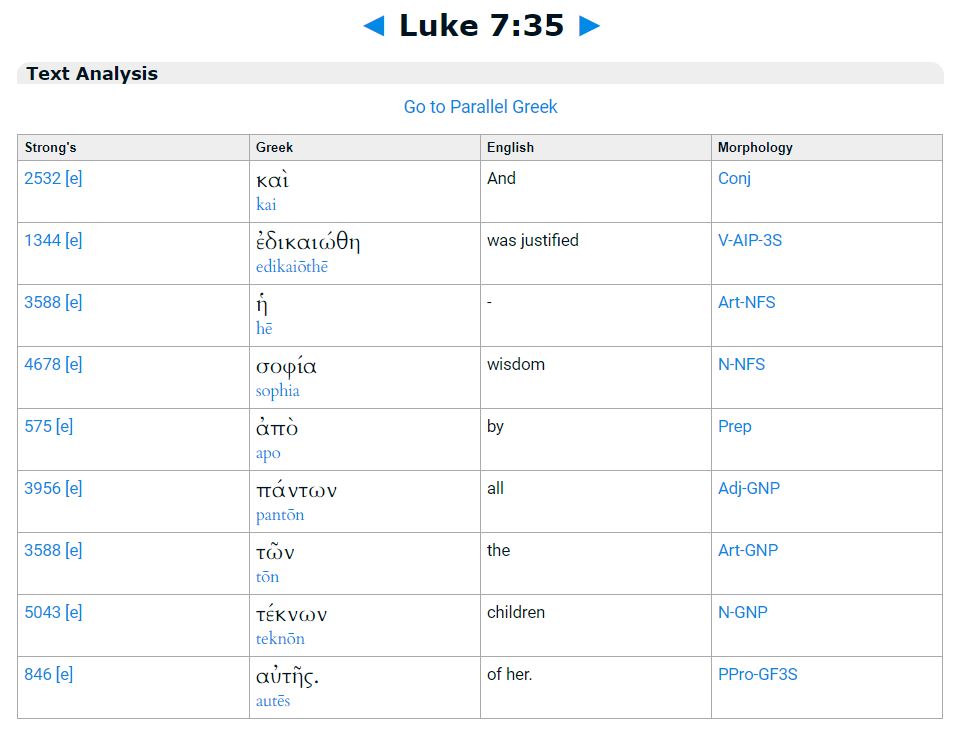 Consider also what Yeshua said to Nicodemus:
Consider also what Yeshua said to Nicodemus:
John 3:
1 There was a man of the Pharisees, named Nicodemus, a ruler of the Jews:
2 The same came to Jesus by night, and said unto him, Rabbi, we know that thou art a teacher come from God: for no man can do these miracles that thou doest, except God be with him.
3 Jesus answered and said unto him, Verily, verily, I say unto thee, Except a man be born again, he cannot see the kingdom of God.
4 Nicodemus saith unto him, How can a man be born when he is old? can he enter the second time into his mother’s womb, and be born?
5 Jesus answered, Verily, verily, I say unto thee, Except a man be born of water and of the Spirit [pneuma], he cannot enter into the kingdom of God.
6 That which is born of the flesh is flesh; and that which is born of the Spirit [pneuma] is spirit [pneuma] .
7 Marvel not that I said unto thee, Ye must be born again.
8 The wind [pnuema] bloweth where it listeth, and thou hearest the sound thereof, but canst not tell whence it cometh, and whither it goeth: so is every one that is born of the Spirit [pnuema].
Can anything be “born” from a male? No. It should go without saying, females give birth!
OK. Now, let’s look at some more verses from the original the KJV Old Testament…
Wisdom of Solomon 6:24 Now what wisdom [sofia] is, and what was her origin, I will declare: and I will not hide from you the mysteries of God, but will seek her out from the beginning of her birth, and bring the knowledge of her to light, and will not pass over the truth:
We all know Solomon “prayed for wisdom” and was thus considered the “wisest man who ever lived.” Consider now his prayer:
Wisdom of Solomon 9:
4 Give me wisdom [sofia], that SITTETH BY THY THRONE, and cast me not off from among thy children:5 For I am thy servant, and the son of thy handmaid, a weak man, and of short time, and falling short of the understanding of judgment and laws.
6 For if one be perfect among the children of men, yet if thy wisdom be not with him, he shall be nothing regarded.
7 Thou hast chosen me to be king of thy people, and a judge of thy sons and daughters.
8 And hast commanded me to build a temple on thy holy mount, and an altar in the city of thy dwelling place, a resemblance of thy holy tabernacle, which thou hast prepared from the beginning:
9 And thy wisdom [sofia] with thee, which knoweth thy works, which then also WAS PRESENT WHEN THOU MADEST THE WORLD, and knew what was agreeable to thy eyes, and what was right in thy commandments.
10 Send her out of thy holy heaven, and from the throne of thy majesty, that she may be with me, and may labour with me, that I may know what is acceptable with thee:
This is in perfect alignment with Proverbs 8 but remember, again, the Wisdom of Solomon was also in the KJV. Not only that, but a very similar concept to what is described above can also seen in the book of Enoch:
1 Enoch 42:
1. Wisdom found no place where she might dwell;
Then a dwelling-place was assigned her in the heavens.2 Wisdom went forth to make her dwelling among the children of men,
And found no dwelling-place:Wisdom returned to her place,
And took her seat among the angels.
3) Original authors of Scripture and ancient commentaries agree.
Numerous ancient Hebrew and Greek texts confirm the understanding of Wisdom/Holy Spirit as described above. Even a number of early “Church Fathers” confirm this. So, when seeking to understand Scripture, it is more than a little helpful to see how the Jews and earliest Christians understood these things. When you take the time to actually “search out the matter” (as Zen has most thoroughly) you will find a very different understanding from that which has been taught to us today concerning the Holy Spirit. At this point, I would encourage you to stop reading this blog and watch Zen’s thoroughly documented three-part series on this topic:
I sincerely hope you took the time to watch and listen to the whole matter. You don’t have to agree with all of it, but you do have to hear the whole argument before coming to conclusions and casting judgment.
Proverbs 18:13 He that answereth a matter before he heareth it, it is folly and shame unto him.
There can be no doubt that two thousand years of Church dogma and denominational biases (often carried forward through Bible translators) has caused us to think about all of this much differently than the actual characters of the Bible and those who lived shortly after the last words in it were written.
Further compounding the problem, is the standard Trinitarian doctrine given to Christianity by a Mithra worshipper (Constantine). To me all of that creates more problems than it solves. Realizing the ruach/pneuma is the BREATH/WIND/SPIRIT of YHWH resolves all such issues – including that of “gender”. Does AIR have a “gender”? No. But it does have attributes. And in the Sovereign majesty of YHWH, those attributes are many – to include those we may consider “feminine” – even though YHWH is clearly masculine.
Don’t misunderstand me. I’m not trying to turn YHWH into a tranny. I’m merely pointing out that He made man in His own image. And you’ll note Eve was IN Adam before being taken out and crafted into a separate entity from his rib. It is only through marriage that the “two become one flesh” once again, reunited in the image and likeness of YHWH.
We serve a big God, who is infinite in attributes and ability. I see no problem with understanding HIM in this way – without requiring multiple beings in Heaven beside Him. Yes, we do see quite a lot of “anthropomorphic language” all through the text. I believe this is just to help finite humans understand the attributes of an infinite Creator. I mean let’s face it, how else can a finite creation understand an infinite, omnipresent, omniscient Being of such immense power and glory? It would be the height of human arrogance to presume we could even come close. Thus, I believe He uses language to describe Himself in terms we can relate to – often doing so in relation to a family. As Zen puts it, the texts describe the “Godhead” as a family unit – Father, Mother, Child (in this case Son). But are there really three separate beings, collectively known as “God” up there? I don’t believe so. Why? Consider…
Deuteronomy 4:35 To you it was shown that you might know that YHWH, He is God; THERE IS NO OTHER BESIDES HIM.
Isaiah 44:6 “Thus says YHWH, the King of Israel and his Redeemer, YHWH of hosts:
‘I am the first and I am the last,
And there is no God besides Me.
Isaiah 45:5 I am YHWH, and there is none else, THERE IS NO GOD BESIDE ME: I girded thee, though thou hast not known me: 6 That men may know from the rising to the setting of the sun
That there is NO ONE BESIDES ME.
I am YHWH, and THERE IS NO OTHER,Isaiah 45:21 “Declare and set forth your case;
Indeed, let them consult together.
Who has announced this from of old?
Who has long since declared it?
Is it not I, YHWH?
And there is no other God besides Me,
A righteous God and a Savior;
THERE IS NONE EXCEPT ME.
This concept is literally seen ALL OVER THE BIBLE. Indeed, there are at least 34 verses in the Bible that tell us there is NO OTHER GOD but YHWH. So splitting “God” up into three people becomes extremely problematic – to the point of becoming completely heretical idolatry – when taking such Scriptures at face value. This is why both Jews and Muslims reject the multi-PERSON God of Christianity. You can’t assign separate, INDIVIDUAL PERSONHOOD to Father, Son and Holy Spirit and still claim to believe in “one God.” You are playing mental gymnastics and deceiving yourself. No. You believe in three “co-eternal, co-equal PERSONS.” I’m sorry, but there simply is no way around it – in this scenario, you clearly have THREE SEPARATE Gods there, that you are lumping into one TITLE called “God.” But Scripture denies this. Even Yeshua Himself denies it.
John 8:42 Jesus said unto them, If God were your Father, ye would love me: for I proceeded forth and came from God; neither came I of myself, but he sent me.
John 20:17 Jesus saith unto her, Touch me not; for I am not yet ascended to my Father: but go to my brethren, and say unto them, I ascend unto my Father, and your Father; and TO MY GOD, and YOUR GOD.
To me, reconciling the “Godhead” of Father, Son and Holy Spirit is easy when I simply take the Scriptures literally. When I do, I find the Holy Spirit is the actual Breath of YHWH/Yeshua as we’ve seen above. And as John 1 says, Yeshua is the WORD of YHWH, that was made flesh and dwelt among us. Another way of looking at Yeshua is as the literal right HAND of YHWH, which all through the Old Testament is said to be His “salvation” (yeshua). Even the name YHWH seems to indicate this and I’ve addressed the issue in several of my presentations, most notably in my The Yahuah Triangle series back in 2014:
Holy Spirit = Breath of YHWH. Yeshua = Hand of YHWH. Done. I have ONE GOD, who inserts Himself into the human experience either by breath/word or via His right hand interacting directly with man. For more on my take on Yeshua as the physical right hand of YHWH, please see: https://ephraimawakening.com/the-hand-of-yhwh-is-salvation/
So, yes, I do believe in a TRI-Unity (aka “Trinity) of Father, Son and Holy Spirit, but I do NOT subscribe to the standard definition thereof, which was given to us by a Mithra worshipper – 300 years after the fact and upon pain of death if you reject it. In my opinion, the standard Trinitarian definition as defined below simply does not work.
The Christian doctrine of the Trinity (Latin: Trinitas, lit. ‘triad’, from Latin: trinus “threefold”)[1] holds that God is one God, but three coeternal consubstantial persons[2] or hypostases[3]—the Father, the Son (Jesus Christ), and the Holy Spirit—as “one God in three Divine persons“. The three persons are distinct, yet are one “substance, essence or nature” (homoousios).[4] In this context, a “nature” is what one is, whereas a “person” is who one is.[5]
In virtually every definition of the Trinity, we find it described as “three co-equal, co-eternal, and distinct persons.” This has always caused substantial problems for me. I just can’t reconcile any of that with what I see in Scripture. While it is the accepted dogma of most of Christianity today, I’m not alone in my frustration with this understanding. In fact, it’s been hotly debated since the time of the Apostles. The only reason we have the above definition locked in our Church doctrine is because of the principle of Majority Rules – and in the early days well into fairly modern times, any contrary opinion was punishable by torture and death, which is a rather convenient way of making a doctrine stick. Believe it or suffer and die! Now it’s believe it or you are labeled and shunned as a black-listed heretic. Either way, the message is clear: you MUST believe the way the majority does or you will suffer the consequences.
But how can you say the “distinct persons” of the “Godhead” are “co-equal” when Yeshua Himself CONSTANTLY denies that? All through the Gospels, we see Yeshua is clearly subordinate to the Father.
sub·or·di·nate:
adjective
1. LOWER in rank or position.
noun
1. a person UNDER the authority or control of another within an organization.
verb
1. treat or regard as of LESSER importance than something else.
None of that amounts to any measure of “co-equality.” Furthermore, the fact that Yeshua was “begotten” shows that He came from the One who begat Him. The Wisdom of Solomon uses similar terminology for the origin of the Holy Spirit/Wisdom too. Both proceed from the Father, YHWH. This alone destroys co-equality and co-eternality. Yes, they were “in” YHWH, thus eternally existing in that way, however, clearly we see they had an undeniable point of origin from Him. And how often did Yeshua defer to the the Father, stating He could only say and do what the Father said and did? He was completely submissive to the Father and never claimed to be “co-equal” with Him. It is abundantly clear that YHWH is the single most dominant entity that exists as the MOST High – God Almighty. Period.
Furthermore, if we assign “distinct personhood” to the Holy Spirit in the same way we do Yeshua or any other “person” for that matter, then YHWH isn’t the Father of Yeshua! Clearly the PERSON called, the Holy Spirit is according to the first Gospel:
Matthew 1:
8 Now the birth of Jesus Christ was on this wise: When as his mother Mary was espoused to Joseph, before they came together, she was found with child of the Holy Ghost.
19 Then Joseph her husband, being a just man, and not willing to make her a public example, was minded to put her away privily.
20 But while he thought on these things, behold, the angel of the Lord appeared unto him in a dream, saying, Joseph, thou son of David, fear not to take unto thee Mary thy wife: for that which is conceived in her is of the Holy Ghost.
You can’t tap dance around this. If you demand “distinct personhood” of the Holy Spirit in your understanding of the Trinity, then clearly the Holy Spirit is the “person” who impregnated Mary, not YHWH. And you can’t just say, well YHWH sent the Holy Spirit to do it. Either YHWH is the Father of Yeshua or the “distinct person” called the Holy Spirit is. This problem is of course further compounded if we assign femininity to the Holy Spirit! How can a FEMALE “distinct person” impregnate another female?? Either way you look at it, the text clearly tells you Mary conceived of the the Holy Ghost and not YHWH. So, either they are separate “distinct persons” or they are not. The latter conclusion resolves quite a lot of problems with Matthew’s narrative concerning Who impregnated Mary and how. It seems obvious enough to me that YHWH the FATHER, breathed his Holy Spirit over Mary and she conceived.
But lets get really funky here. What do we do with the SEVEN Spirits of God in Isaiah 11:2-3 and Revelation 1:4; 3:1; 4:5 and 5:6?? The Holy Spirit is either a member of this seven or is in addition to it (depending on who you ask). If YHWH, who Himself is a Spirit, also has seven (other) spirits, then all would have to be just as Divine as He is. So, when you demand “distinct personhood” for each member of the “Godhead,” how many are we really dealing with here? Three, Seven, Eight, Nine or TEN (seems to be getting rather crowded around the Throne doesn’t it)? And how is all of this to be reconciled with the repeated statements of Scripture that we have ONLY ONE God? GotQuestions.org attempts to answer this, but in my opinion, they fall short…
They conclude by saying the “most likely” answer to the problem is that the Seven Spirits of God are actually the Holy Spirit. But wait. The Holy Spirit is allegedly a distinct person of the Godhead, which allegedly is a three-in-one, plural/singular Deity. So, now we have a three-in-one, within which one of the three is a seven-in-one? Wait. What!??
Most won’t take the time to even ask these types of questions. And everyone believes everyone else who holds to a different view is a “heretic.” Majority rules is the nature of this game.Thus, the majority is always the self-proclaimed “authority” who sets the standard “doctrine” and enforces it – often upon pain of persecution and even death. Yet, nowhere in Scripture are we given a concise, irrefutable, undeniable, clear-cut definition for understanding the exact nature of the Father, Son and Holy Spirit. Rather, we must piece it all together from the whole counsel of Scripture and do our best as finite humans to understand an infinite God, Who’s ways, thoughts and true nature are very far above ours. So, it would be the height of extremely arrogant hubris to assume we could actually put any measure of a truly accurate description together and declare ourselves to be correct and everyone else wrong – or worse, a “heretic.” So, don’t stand (or sit) there judging me or Zen concerning these issues, because I guarantee you don’t have it all figured out either. No one does.
Realizing this, I’ve settled on the following criteria as my litmus test for who I will consider a brother or sister in Christ:
- Do they believe Yeshua is the Way, the Truth and the Life and that no one comes to the Father except through Him (John 14:6)?
- Do they believe salvation is a free gift received by grace through faith and not of works (Ephesians 2:8,9)?
- Do they fit the description given in 1 John 2?
Zen fits all of these perfectly. As for 1 John 2, what am I talking about there? Well, let’s look at it together, shall we?
1 John 2:
2 My little children, these things write I unto you, that ye sin not. And if any man sin, we have an advocate with the Father, Jesus Christ the righteous:
2 And he is the propitiation for our sins: and not for ours only, but also for the sins of the whole world.
3 And hereby we do know that we know him, if we keep his commandments.
4 He that saith, I know him, and keepeth not his commandments, is a liar, and the truth is not in him.
5 But whoso keepeth his word, in him verily is the love of God perfected: hereby know we that we are in him.
6 He that saith he abideth in him ought himself also so to walk, even as he walked.
7 Brethren, I write no new commandment unto you, but an old commandment which ye had from the beginning. The old commandment is the word which ye have heard from the beginning.
8 Again, a new commandment I write unto you, which thing is true in him and in you: because the darkness is past, and the true light now shineth.
9 He that saith he is in the light, and hateth his brother, is in darkness even until now.
10 He that loveth his brother abideth in the light, and there is none occasion of stumbling in him.
11 But he that hateth his brother is in darkness, and walketh in darkness, and knoweth not whither he goeth, because that darkness hath blinded his eyes.
12 I write unto you, little children, because your sins are forgiven you for his name’s sake.
13 I write unto you, fathers, because ye have known him that is from the beginning. I write unto you, young men, because ye have overcome the wicked one. I write unto you, little children, because ye have known the Father.
14 I have written unto you, fathers, because ye have known him that is from the beginning. I have written unto you, young men, because ye are strong, and the word of God abideth in you, and ye have overcome the wicked one.
15 Love not the world, neither the things that are in the world. If any man love the world, the love of the Father is not in him.
16 For all that is in the world, the lust of the flesh, and the lust of the eyes, and the pride of life, is not of the Father, but is of the world.
17 And the world passeth away, and the lust thereof: but he that doeth the will of God abideth for ever.
18 Little children, it is the last time: and as ye have heard that antichrist shall come, even now are there many antichrists; whereby we know that it is the last time.
19 They went out from us, but they were not of us; for if they had been of us, they would no doubt have continued with us: but they went out, that they might be made manifest that they were not all of us.
20 But ye have an unction from the Holy One, and ye know all things.
21 I have not written unto you because ye know not the truth, but because ye know it, and that no lie is of the truth.
22 Who is a liar but he that denieth that Jesus is the Christ? He is antichrist, that denieth the Father and the Son.
23 Whosoever denieth the Son, the same hath not the Father: he that acknowledgeth the Son hath the Father also.
24 Let that therefore abide in you, which ye have heard from the beginning. If that which ye have heard from the beginning shall remain in you, ye also shall continue in the Son, and in the Father.
25 And this is the promise that he hath promised us, even eternal life.
26 These things have I written unto you concerning them that seduce you.
27 But the anointing which ye have received of him abideth in you, and ye need not that any man teach you: but as the same anointing teacheth you of all things, and is truth, and is no lie, and even as it hath taught you, ye shall abide in him.
28 And now, little children, abide in him; that, when he shall appear, we may have confidence, and not be ashamed before him at his coming.
29 If ye know that he is righteous, ye know that every one that doeth righteousness is born of him.
Zen will be the first to admit he is not perfect. He’s a sinner just like the rest of us, but in all the years I have known him, I have seen him striving to be one who “acknowledgeth the Son” thus also he “hath the Father.” He strives to live his life in accordance with the commandments. He has never denied Yeshua is the Messiah and I’ve seen him show FAR more love for people than those who regularly attack him. For these reasons and more, I am more than confident in calling him my brother in Christ and considering him a dear friend. And I’m happy to be partnered with him in our Quest4Truth ministry efforts.
Furthermore, please note that nothing in the Bible demands that we have a full and accurate understanding of the nature of the Holy Spirit. Did the thief on the cross have to have the nature of the Holy Spirit all figured out? No. Neither does John see it as a requirement for salvation or even fellowship for that matter. In fact, if a “true understanding of the Trinity” were required, John clearly forgot one of the “distinct persons” in verses 22 – 24. So, please stop with the whole “They are worshipping a different god” nonsense!
Now, having said all of the above, whenever I have asked Zen Garcia point-blank what his take on the Holy Spirit is, he has consistently DENIED believing in “Sofia” as in the goddess of mythology and gnosticism. He has only acknowledged “sofia” as the GREEK WORD for Wisdom, which Solomon recognizes as the Holy Spirit that was with YHWH at Creation.
This being the case, I have to ask the audience, is it POSSIBLE that the pagans and gnostics had a SIMILAR understanding, which they perverted? IS – IT – POSSIBLE? I say, yes. Not only possible, but quite likely. You only counterfeit that which is real. Indeed, the idea that the pagans and later “Christian gnostics” may have latched onto COUNTERFEIT ideas concerning the Wisdom/Sofia/Holy Spirit of YHWH can easily be seen. And Zen has likewise acknowledged this (listen to the end of Part III in the above playlist to hear him say as much).
Now the much later concept of “Barbelo” shows up in gnostic writings (and even in some early “Church Father” writings – condemning the gnostics). But Barbelo appears to me to be just another manifestation of this same counterfeit, which seems to have also spun off into cults, condemned by the likes of Irenaeus. I do NOT accept Barbelo nor Sofia as entities worthy of my attention. However, I can see how both concepts could have easily been derived from the Wisdom/Chokmah of Scripture – just twisted, perverted and distorted. We see similar things have happened with a wide variety of doctrines in the Church today. I mean, we live at a time when Christians actually think it’s OK to “Christianize” paganism and will passionately defend that belief (as in accepting and practicing X-mess and Ishtar Day over the Holy Days of YHWH), so this is nothing new. But that’s a whole other issue and another deep rabbit hole I’ve addressed elsewhere at length.
With this in mind, it is my opinion, that it is a mistake to refer to the Holy Spirit as Sofia or Barbelo due to the distorted representations of both in paganism and gnosticism, each of which carry significant “baggage” unworthy of the purity of the Wisdom/Chokmah/Holy Spirit found in Scripture. For me, it’s best to stay clear of such identifiers, while still recognizing from whence they came. There is after all a reasonable paper trail you can follow all through ancient literature to see what happened, when and why. And if you take the time to actually talk to Zen or listen to what he says, you will find he believes the same way. As for his “dedication to Barbelo” in one of his older books, Zen recognizes and admits the problem and has said he intends to correct it. He does NOT believe in the gnostic Barbelo, but rather only acknowledges that Barbelo was a concept, twisted and distorted by the gnostics from the Chokmah/Sofia/Wisdom/Holy Spirit of Scripture (keeping in mind that he also rejects the Sofia of Greek and Roman mythology). And if you don’t believe me, listen to him say it for yourself. In the first half of this show, we addressed these issues point-blank:
At any rate, I hope this blog helps to clear up some, if not all of this. You don’t have to believe what either Zen or I do, but at least you now know what we believe and why.
- Rob Skiba


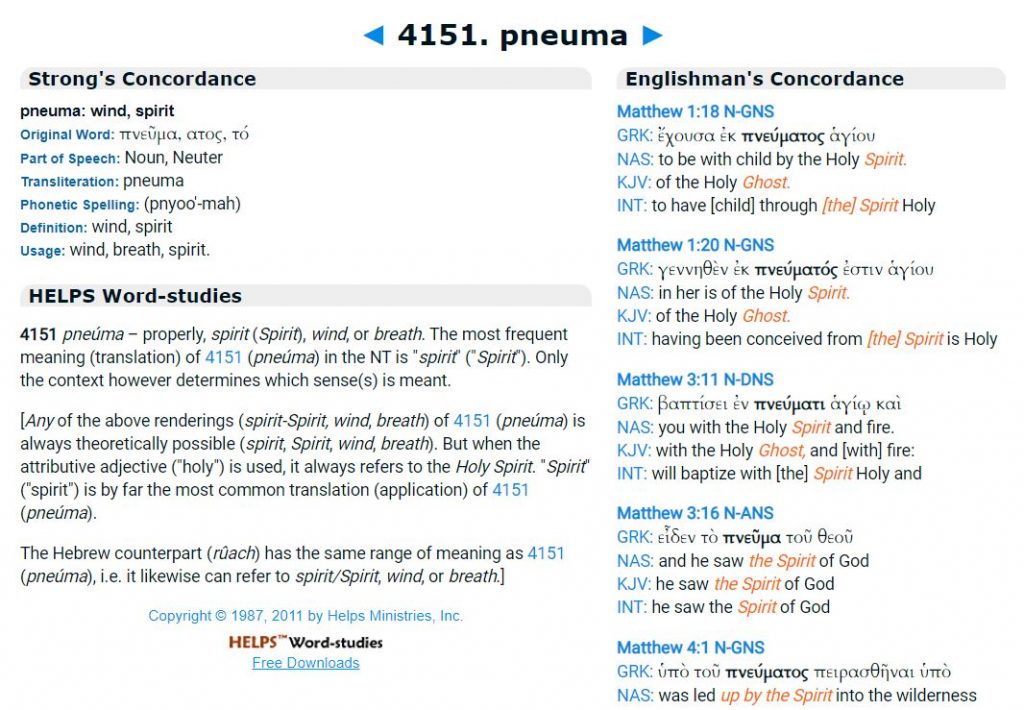
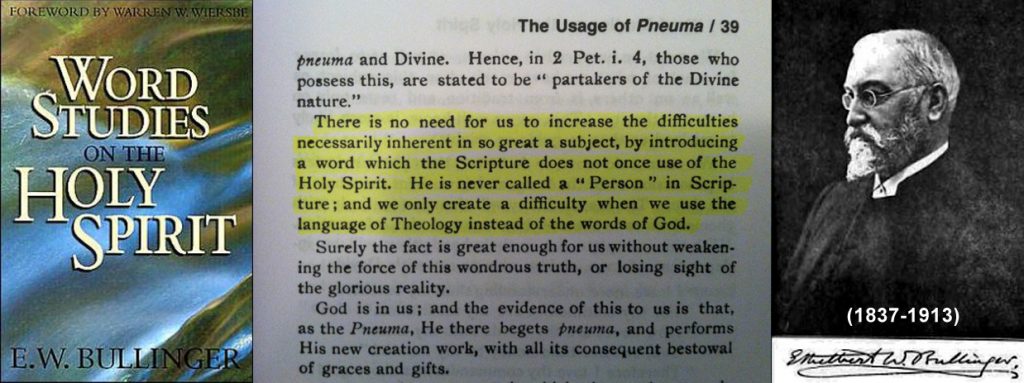
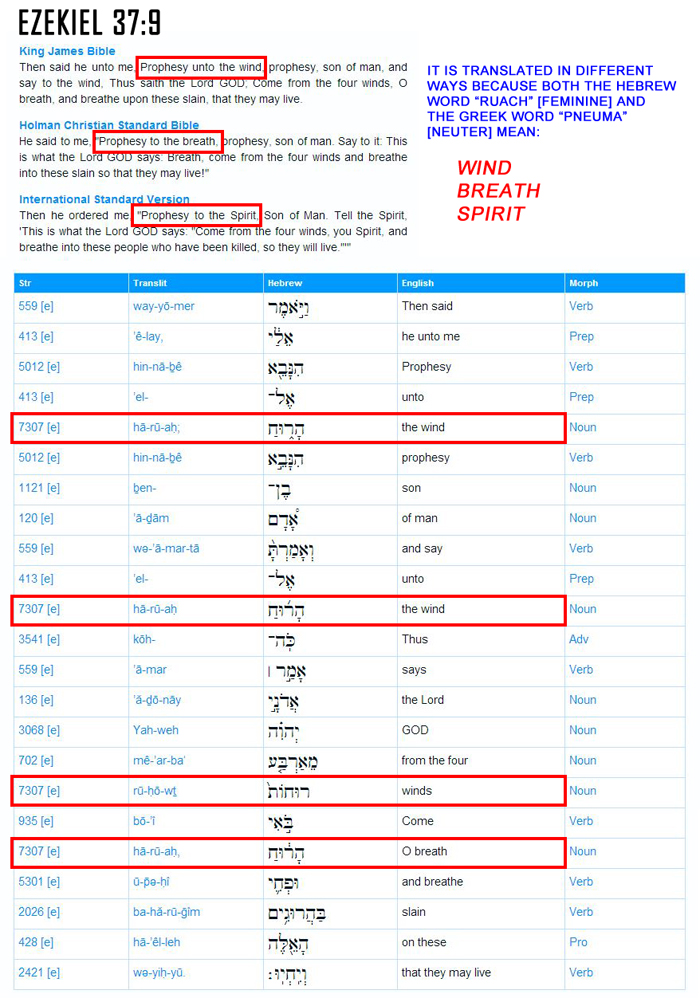
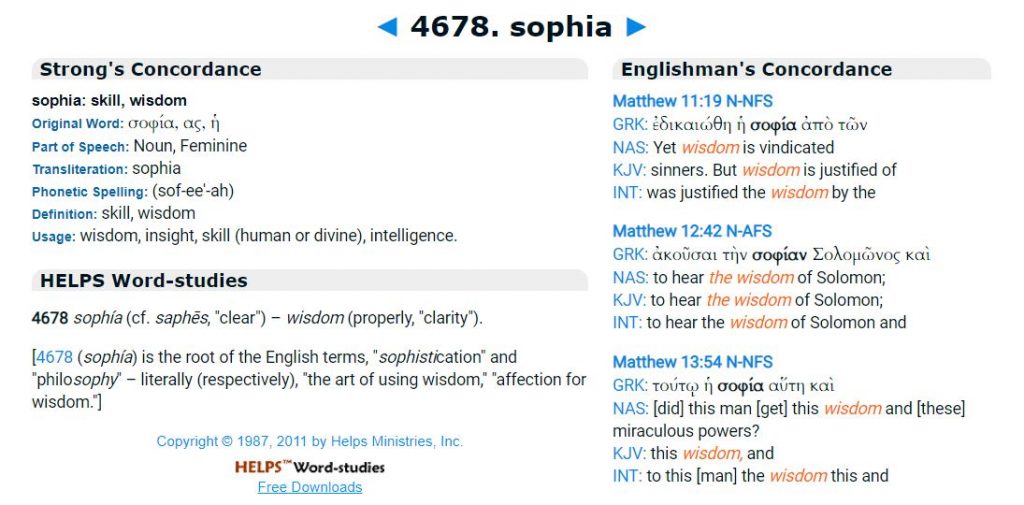
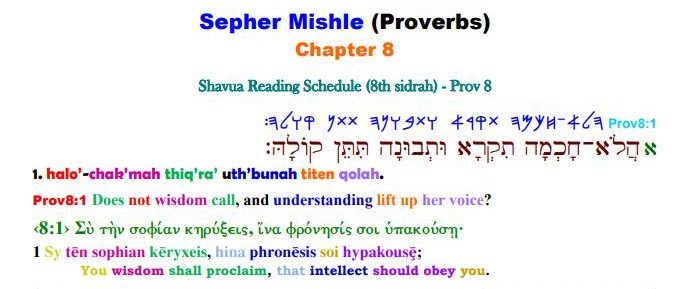
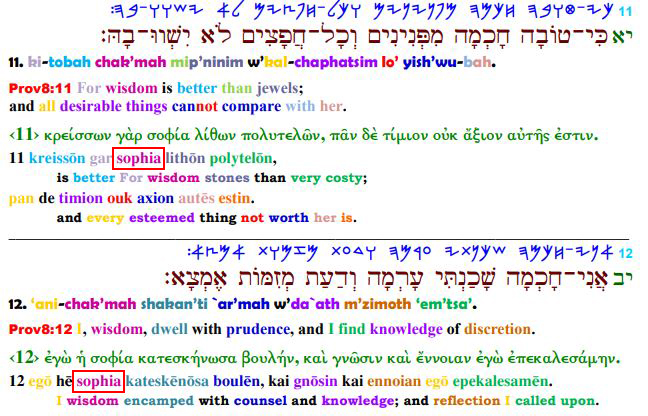
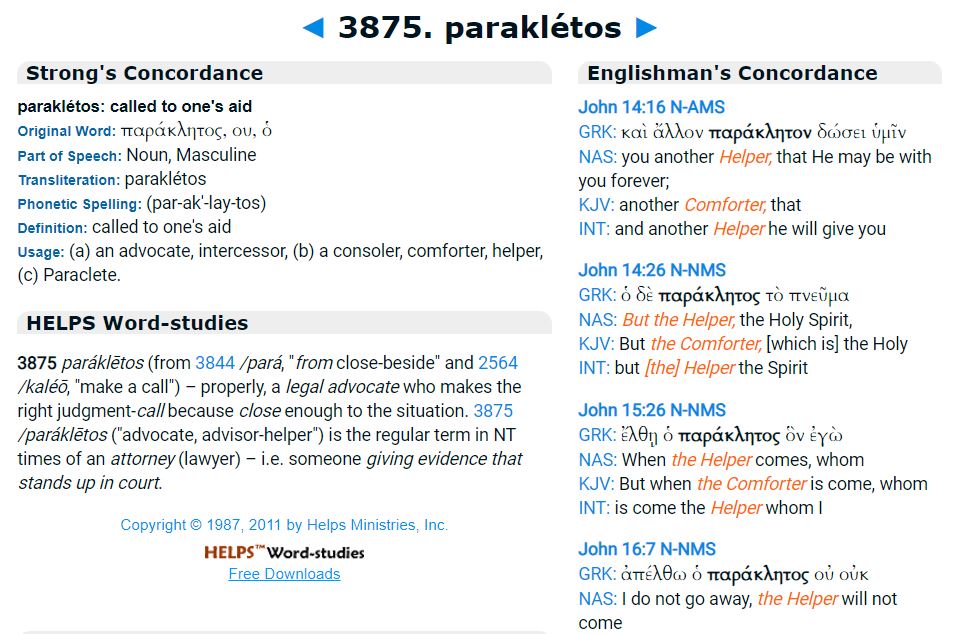
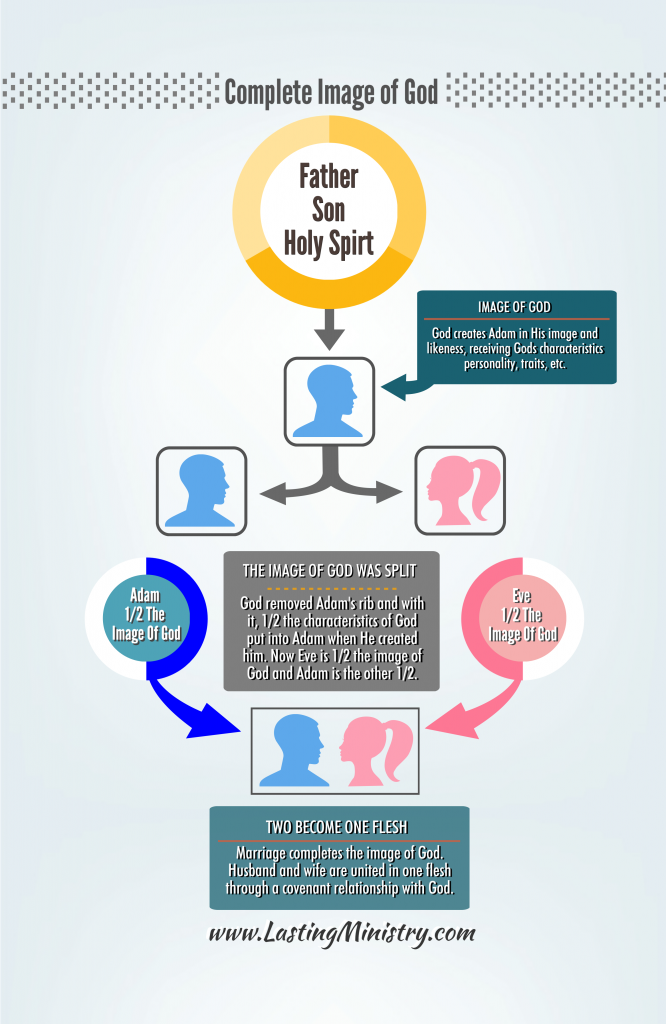
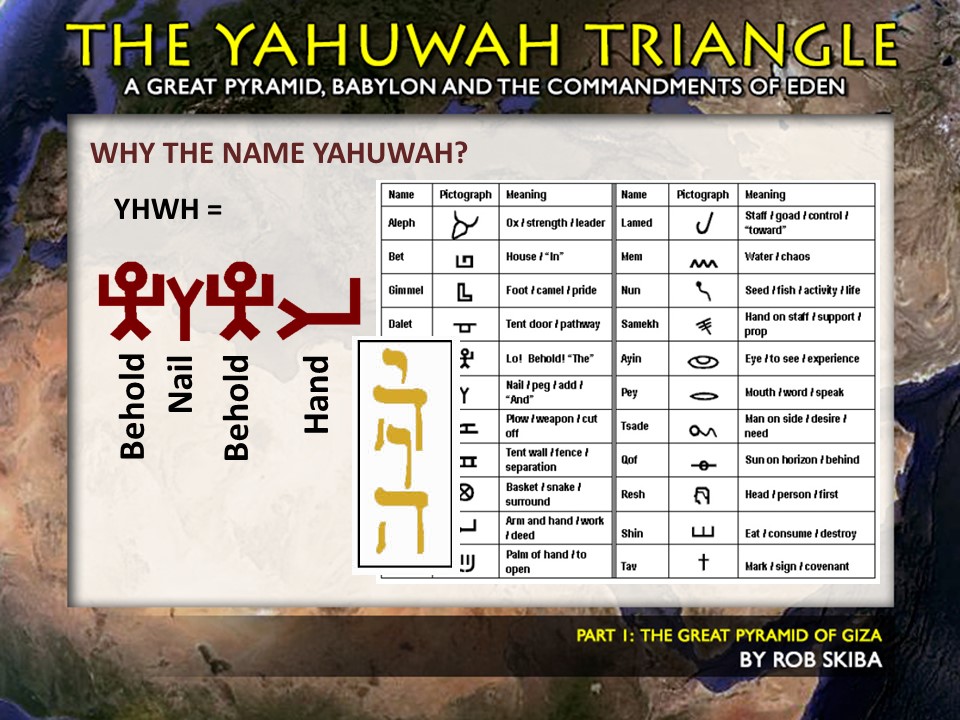
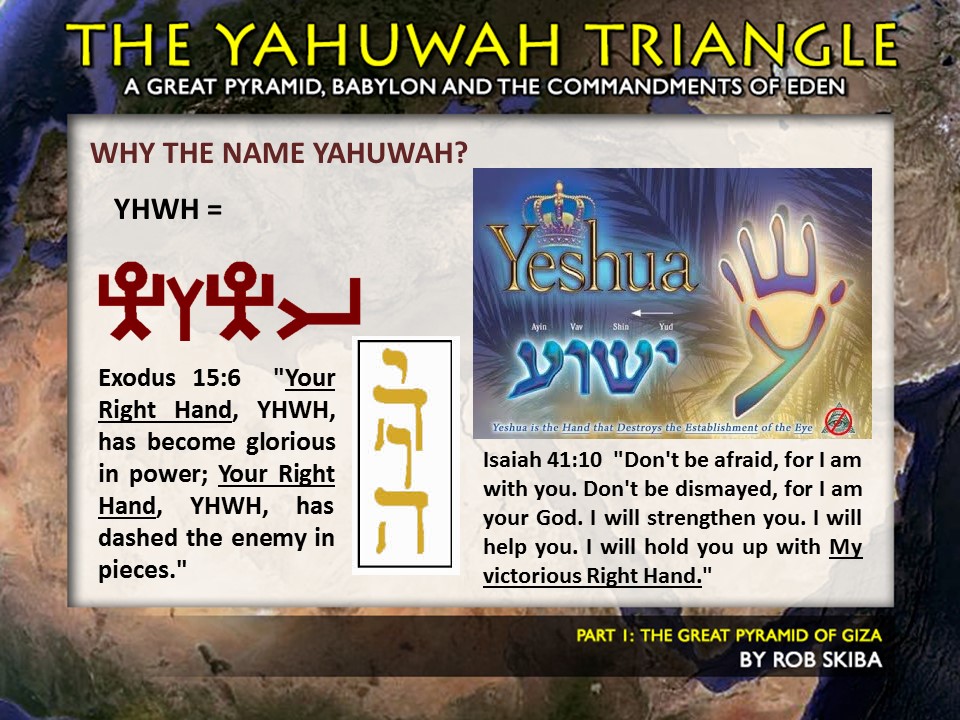


Thank you Rob. Your way of teaching and using the scriptures to back up what you are saying is a breath of fresh air. I have learned a lot listening to you and Zen. May Yahuah’s hand remain on you always and his blessing.
Thank you your brother in Yahusha
Many read Satanic, Luciferian & Masonic books too much. Some have issues that a Feminine Spirit of God is in Kabbalah so it’s not true in the Bible. Like the New Age movement; sucks people in with twisted truths. “Reap what you sow” VS Karma. Muslim’s teach about Jesus. That doesn’t mean he never existed. Bankers don’t study the fake, they study the real! There is truth in everything. The best lies are 99% truth.
They ONLY lead by example & ALWAYS! Many NEED 2 forgive their mothers. ALL the Prophetic people I know; KNOW the *feminine aspect of God & NOW I KNOW personally: facebook.com/photo.php?fbid=10163383513925573
I agree whole heartedly with you on this Rob! thank you for putting so much detail in this blog post. For those who are in the King James Cult, I have realized that they have a strong religious spirit. When I try to bring in the Hebrew and Aramaic words, they have a fit. So now I just give them a wide birth. Their minds have been seared no longer being teachable and they are blind to the truth that would set them free. In doing all things we are to do it in love and many times I do not see that reflected through them when they become dogmatic and belligerent. BTW – may I ask what site or software you use that has the Hebrew and Greek in the different colors? It would be very helpful for my study as well.
Thank you. Yes, that site is very helpful indeed. Here is the link: http://www.bayithamashiyach.com/Scriptures.html
Thanks brother Rob Skiba, may YHVH keep you and Zen safe and covered
Well said CA.
Amen.
The Apocryphon of John, translated by Marvin Meyer
I have read this more that a dozen times now.
Who do you think wrote it?
If it is the same John as the New Testament John then how do we interpret it?
Well said. Too many judgmental & narrow minded clones out there now. I live with one. They saw me reading the Apocrypha & said it was an evil book & I would be condemned to hell for owning it. Also it is an unforgiveable sin to write in a bible (KJV of course) because I was defacing the holy words of God. Funny how this same Christian person could barely quote any bible verses…hmm.
I love you & Zen for being bold & well taught & trying to show the truth to a really dumbed down world ready to riot over anything stupid or insane. They don’t want to be judged (because they might have to repent) yet they sure love judging others. They all just know for sure they are gonna sit in the big seat in Heaven with their ever loving JC. Yahuah have mercy on us all & forgive us our shortcoming.
1 Peter 4:18
“And if the righteous scarcely be saved, where shall the ungodly and the sinner appear?”
Your article is very well detailed, until you get to the last part. Spirit, wisdom, sophia, well explained out. But how did he go from calling the spirit sophia to calling the spirit barbelo? Is barbelo the word for wisdom in another language as sophia is the word for wisdom in Greek?